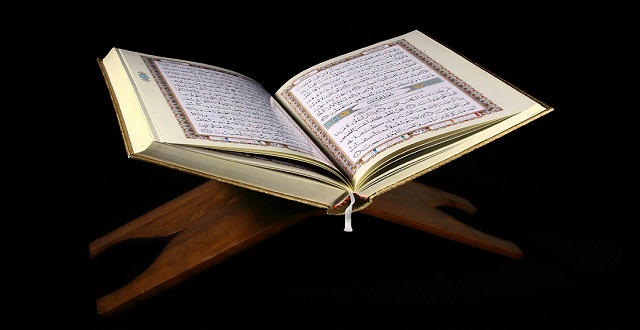The Twelfth Imam, The Great Leader and Peace-Maker of the World
1. The End of the Night of Darkness
When we look at our present situation, and we see the increase in crimes, massacres, wars, bloodshed, conflicts, international differences and the daily increase in corruption, we ask ourselves if the situation will continue in the same way and the extent of the crimes and corruption will so grow that all of society will be included in a continuous war and destroyed?
Or the ideological differences and ethical corruption will, like quicksand, take society along with it or is there still hope that one day humanity will be saved and reformed?
There are two answers to this important question.
The first answer: This is mentioned by the materialists and the pessimists and that is that the future of the world is dark and that every moment, a danger exists.
The second is of those who believe in the divinely revealed religions, in particular, the Muslims and, especially the Shi’ites, who give another answer to this question and they say: Behind this dark night lies the morning of hope.
These dark, stormy, death-like clouds and the flood of destruction will finally be eliminated and the clear heavens and the brilliant sun and a quiet environment will follow.
These hidden hurricanes will not always be before us and in the near future, we will be taken to the shore of salvation.
The world is in anticipation of a great Reviver who will, through a revolution, transform the world to the advantage of truth and justice.
Of course, we must note that each religion calls this leader by a different name. As an Arab poet says, “We call you by different names. But your beauty is not more than one thing and all of our words are directed towards that world of beauty!”
2. The Primordiality and Manifestation of this Great Reviver
Our inner inspirations whose waves come through the judgment of wisdom are more powerful, not only in the issue of ontology, which can guide us in all of our religious beliefs, but also guides us in this issue.
Its signs:
First, the general love for justice of the world because all of the people of the world, in spite of all of the differences which they have, without exception, show love for peace and justice. We all cry out and make endeavors upon this way and we seek peace and justice of the world with all of our being.
A more important reason than this for the primordiality of the manifestation of a great Reviver cannot be found because the generality of such a need is proof of its Primordiality (Note this with care).
Every love and primordiality speaks of the rule of existence of a beloved and is moving to attract it.
How is it possible that God place this thirst in the inner spirit of the human being and not provide a fountain which will quench this thirst?
It is here that we say that the primordiality and nature of the seeking of justice of human beings cries out.
One day justice and peace will take over the entire world. The organizations of oppression will be destroyed. Humanity will take on the form of one country and will live under One flag, with solidarity and Unity and Purity of life. Another sign is the commonality which exists in all religions of the world as to the existence of a great Reviver.
In more or less all of the religions, such a chapter exists and the idea of the belief in the manifestation of a savior of the people who will heal all of the wounds of humanity is not only present among Muslims but rather all of the documents show that this is a universal belief which is primordial and exists in all of the religious groups of the East and the West, even though Islam, which is a more complete religion, places greater emphasis upon it.
3. Intellectual Proof
A. The order of the creation is a lesson for us that the world of humanity must, in the end, be ruled by the law of justice and remains based on a system of justice and peace.
This means that the world of existence, to the point that we know, is a complex of orders, systems and laws which are proof of the unity of the world and the connection to this system.
The issue of order and law and programming and accounting is one of the most serious and basic issues of this world.
From the Milky Way to a minute atom, several million of which can be placed upon the head of a pin, all are of a special order.
The various organs of our body, from the amazing structure of a cell to the system of nerves and veins to the brain and the heart and the lungs, all have a particular order which is such that some scholars say that each one is like a clock which works within the body and the greatest computers are nothing in comparison to it.
In such a world, can a human being exist as a part of this universal as an non-conformed and disorderly part with wars and bloodshed and oppression?
Does injustice and the real corruption of a society, a type of disorder, always rule over humanity?
The result is that the witnessing of the world of existence makes us aware of the fact that the end of human society is justice and order and that it will return to the man line of creation.
B. The evolutionary or transformative line of society is another proof for the future which is clear of the world of humanity because we can never deny this truth that human society, from the day that it recognized itself, has never stopped at one stage and is continuously moving forward.
From the material point of view, from the view of clothes, housing, type of food and means of transportation humanity has lived through the most basic of situations and today it has reached the stage which surprises the sight and intellect and most certainly this ascent will continue.
From the point of view of knowledge and culture, also, the direction is always one of ascent or increase and every day new discoveries and new information is gained.
This law of transformation or evolution will include spiritual, ethical and social aspects as well as humanness and will move towards a just law, permanent peace, justice and moral and spiritual virtues and if we see that today, moral corruption is increasing, this is also an area to prepare for a transformative revolution.
We can never say that corruption should be encouraged but we say that when corruption reaches beyond a certain point, it will bring about the reaction of a moral revolution. When human beings find themselves before a dead end as a result of their undesirable sins, their heads hit a stone wall, and their lives are near ending, they will at least, be prepared to accept such a principle that comes on behalf of a divinely inspired leader.
4. The Qur’an and the Manifestation of the Mahdi
In the great heavenly book, there are multiple verses which give the glad tidings of a great manifestation. We will only select one verse from among all of them to show this truth.
“God has promised, to those among you who believe and work righteous deeds, that He will, of a surety, grant them in the land, inheritance (of power) as He granted it to those before them; that He will establish in authority their religion — the one which He has chosen for them; and that He will change (their state), after the fear in which they (lived), to one of security and peace. They will worship Me (alone) and not associate aught with Me. If they do reject faith after this, they are rebellious and wicked” (24:55)
This verse well shows that finally the rule on the earth will be free of tyranny and oppressors and the righteous believers will rule over the universe.
Imam ‘Ali ibn ‘Husayn, in commentating upon this verse, said, “This group, I swear by God, is those very followers of our school. God, by means of a man from our family will realize this promise and he is the Mahdi of this ummah.
5. Imam al-Mahdi in the Traditions
The Traditions about the world rule and its realization along with peace and justice, by means of an individual of the family of the Holy Prophet who is called the Mahdi, is so great in the Sunni and Shi’ite source books that they are beyond counting.
And Traditions in relation to the twelfth Imam and the successor to the Holy Prophet, and the ninth child of Imam Husayn and the immediate child of Imam Hasan Askari is also extensive in Shi’ite resources.
In the first part, that is, the extent of the Traditions about the appearance of the Mahdi from Sunni resources, it is sufficient that the Sunni scholars, in their books, directly recall it. In a publication from the Rabitah al-’Alim Islami, the greatest center of learning in the hijaz, it says, “He is the twelfth orthodox caliph which the Holy Prophet mentioned in the Traditions of sahabah and these Traditions of the Mahdi have been recorded by many of the Companions of the Holy Prophet of Islam.”
Then, after naming the 20 Companions of the Prophet who have recorded the traditions of the Mahdi, it continues, “Other than them, there is a large group who have recorded these Traditions… some of the Sunni scholars, have written books on the appearance of the Mahdi among Whom are Abu Na’im Isfahani, ibn Hujar Haitha, Shu Kani and Idris Maghrabi, Abu Abbas ibn Abdallah Mu’min.” Then it adds, “A large group of the past and today of the Sunnis directly have accepted the succession of the Traditions of the Mahdi.
Then after mentioning the name of a group of them, it ends with these words, “A large number of commentators and memorizers have directly said that the Traditions of Mahdi are directly, clearly and decisively successive and the belief in the appearance of the Mahdi is obligatory.
This is among the clear beliefs of the Sunnis and none but the ignorant and heretics will deny it.
6. But as to Shi’ite Traditions
It is sufficient for us to know that hundreds of Traditions of the Prophet and the Imams have been recorded in this area so that it is beyond succession.
Among the Shi’ites, it is considered to be obligatory and no individual can be among the religious people and be unaware of it and not accept the appearance of the Mahdi, his particularities, his type of rule and his program. The great Shi’ite ‘u1ama, from the beginning until today, have written many books in this area and they have gathered Traditions in this area.
As an example, we will present two or three Traditions and those who are interested in further study should read Mahdi, Inqilabi Bozorg, Nuvid Imam and Imam and the translation of the book al-Mahdi written by Sayyid Sadr al-din Sadr.
The Holy Prophet of Islam said, “If only one day remains from the life of this world, God will lengthen it so that the Mahdi will be sent from God to fill the earth, which is filled with tyranny and oppression, with justice and equity.”
In a Tradition of Imam Sadiq, we read, “When the time of the arising of the rule of the Redeemer comes, he will establish it upon justice. Tyranny and oppression during his rule will be eliminated; roads and passage ways during his rule, will be safe and the earth will be blessed.
Every right will be given to its rightful owner and he, among the people, will judge like David and Muhammad. At this time, the earth will reveal its treasures and it will reveal its blessings. No needy person will be found because all believers will be without need.
Think and Answer
1. What is the difference between the thoughts of the believers and the materialists as to the future of the world?
2. Can one come to understand the manifestation of the Mahdi by means of primordiality? How?
3. Do we have intellectual proof for his appearance? Which proof?
4. What does the Qur’an say about this?
5. What does a study of the Traditions show?










